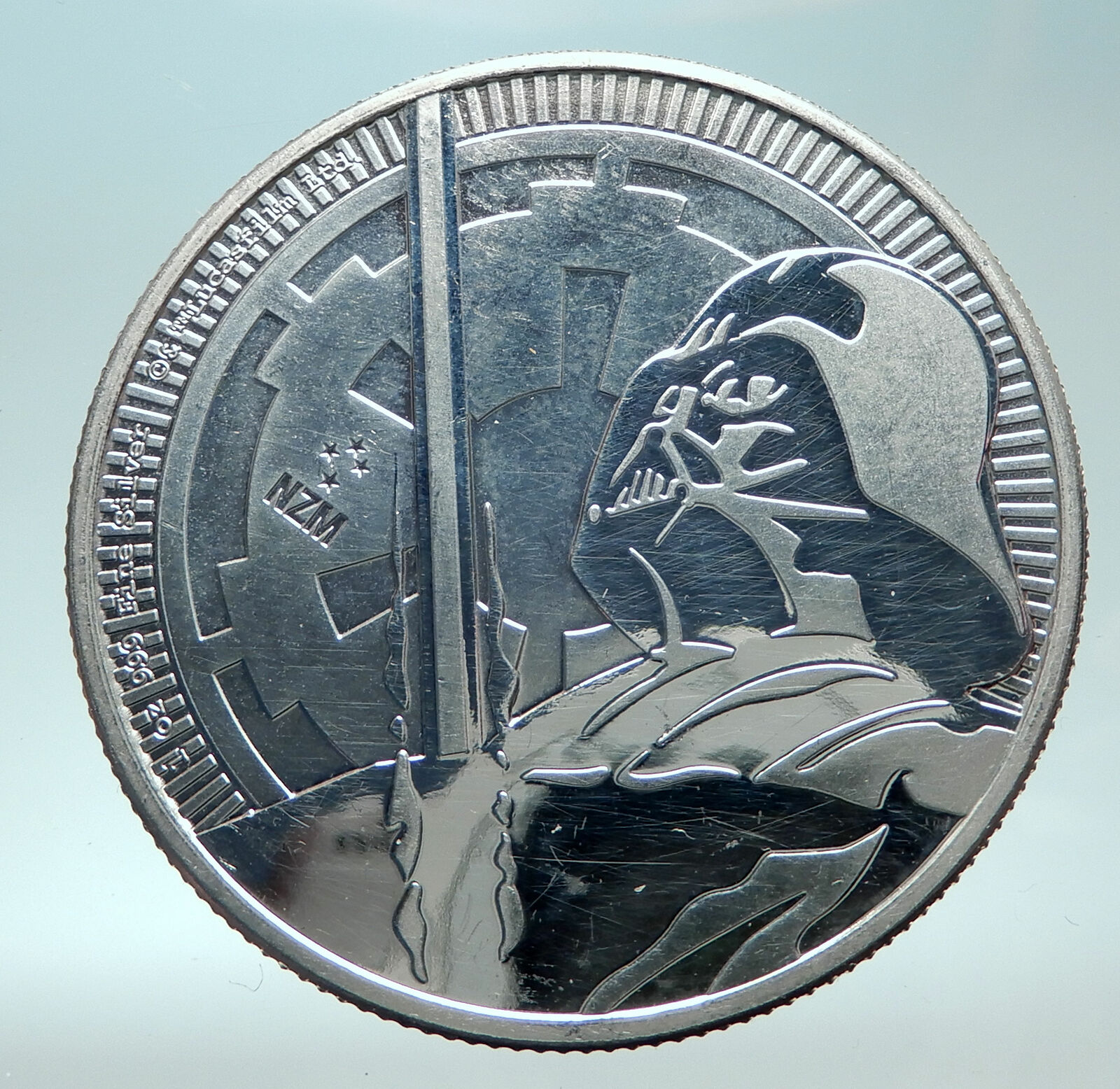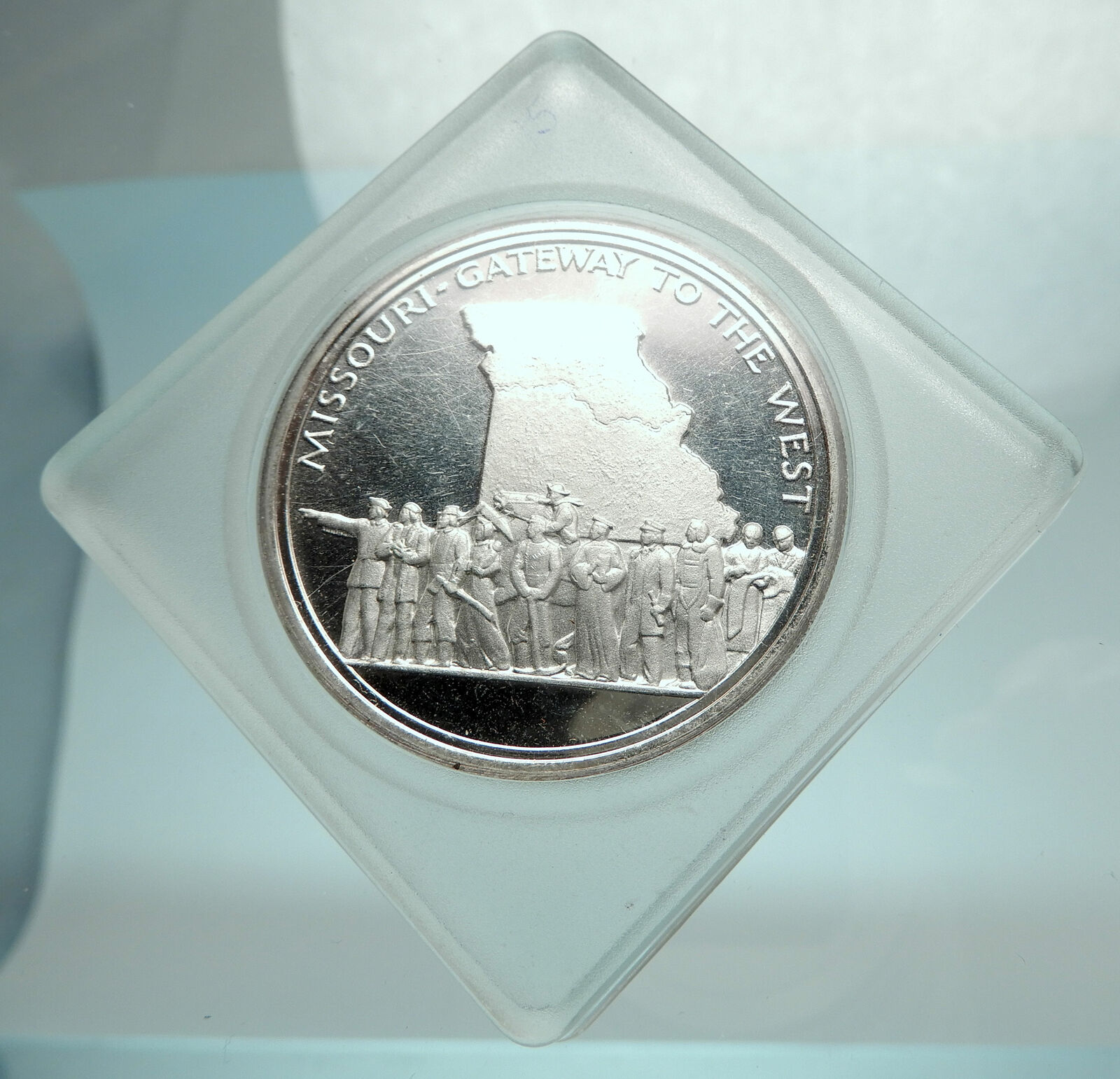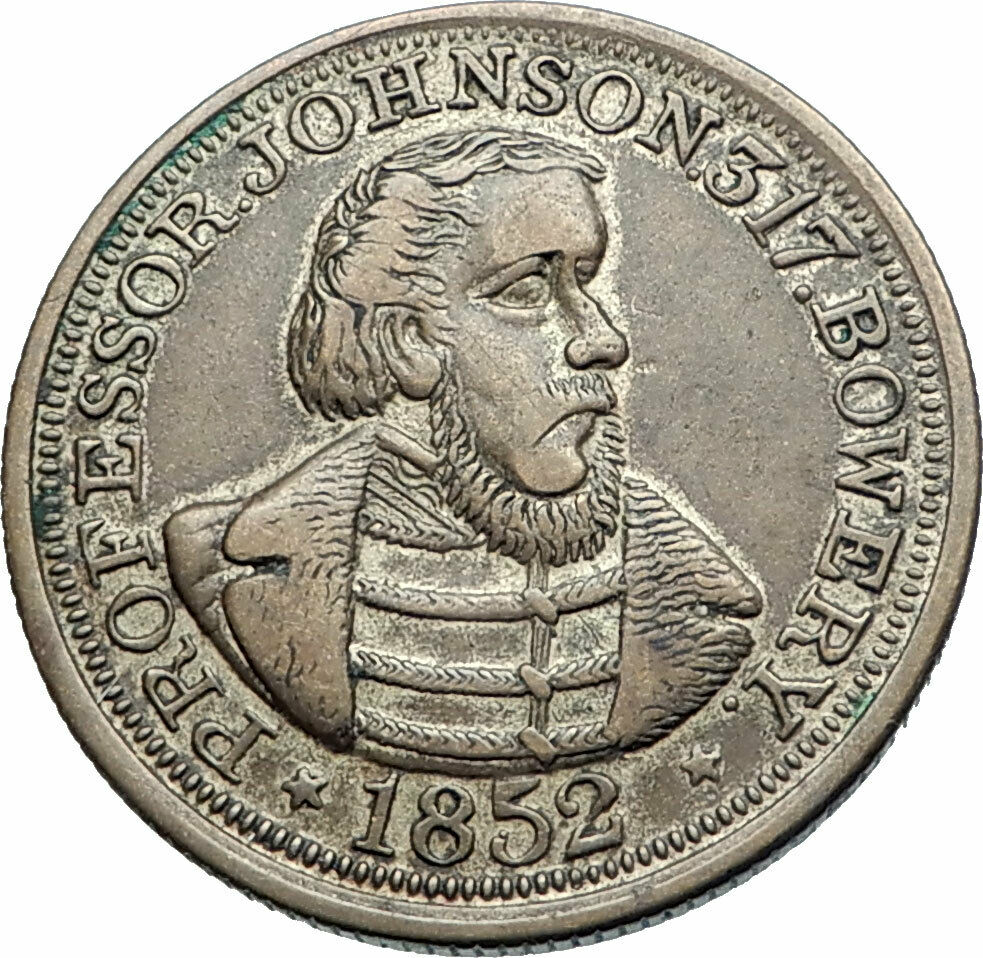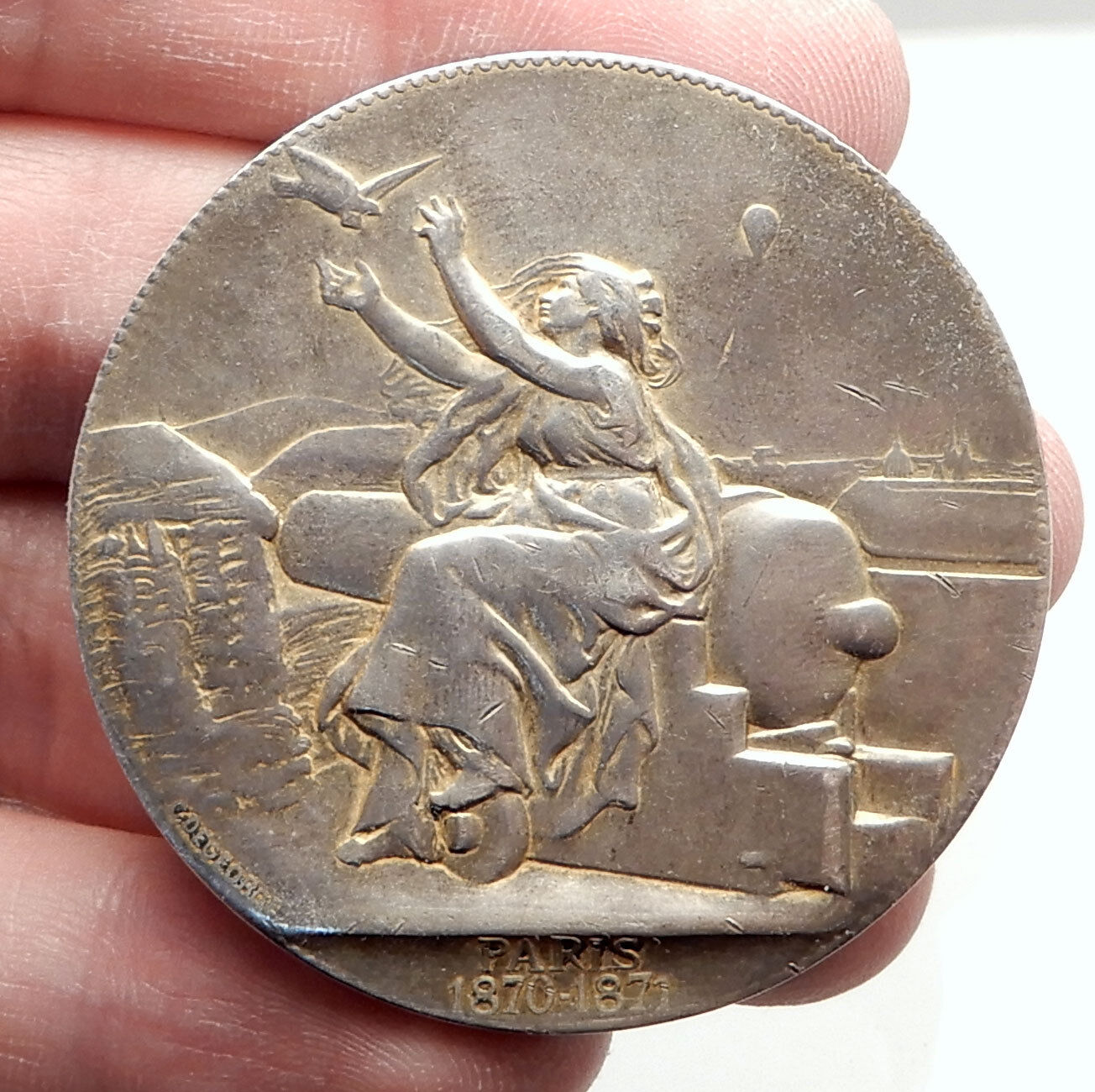|
Israel – Edmond De Rothschild and His Son James, Knesset
1966 Proof Gold Medal 35mm (30.00 grams) .917 Gold
Reference: ICMC# 35037359 #1981 | Design: Paul Vincze
Certification: NGC PF 66 ULTRA CAMEO 2864285-007
EDMOND DE ROTHSCHILD FATHER OF THE YISHUV AND HIS SON JAMES WHO GAVE THE KNESSET IT’S HOME, Text surrounds two ovals with portrait within each, Edmond de Rothschild facing 3/4 right on left, James facing left on right.
Workers, woman with child in each hand standing atop platform, man balancing it using gear cog, Knesset building above.
Edge Lettering:
STATE OF ISRAEL 1981
You are bidding on the exact item pictured, provided with a Certificate of Authenticity and Lifetime Guarantee of Authenticity.
 Baron Abraham Edmond Benjamin James de Rothschild (19 August 1845 – 2 November 1934) was a French member of the Rothschild banking family. A strong supporter of Zionism, his large donations lent significant support to the movement during its early years, which helped lead to the establishment of the State of Israel, where he is simply known as “the baron Rothschild”. Baron Abraham Edmond Benjamin James de Rothschild (19 August 1845 – 2 November 1934) was a French member of the Rothschild banking family. A strong supporter of Zionism, his large donations lent significant support to the movement during its early years, which helped lead to the establishment of the State of Israel, where he is simply known as “the baron Rothschild”.
A member of the French branch of the Rothschild banking dynasty, he was born in the Paris suburb of Boulogne-Billancourt, Hauts-de-Seine, the youngest child of James Mayer Rothschild and Betty von Rothschild. He grew up in the world of the Second Republic and the Second Empire and was a soldier “Garde Mobile” in the first Franco-Prussian War.
In 1877, he married Adelheid von Rothschild of Naples, the daughter of Wilhelm Carl von Rothschild, one of the Rothschild banking family of Naples, with whom he had three children: James Armand Edmond, Maurice Edmond Karl and Miriam Caroline Alexandrine.
Art, science and academy
 Edmond de Rothschild inherited Château Rothschild, Boulogne-Billancourt and owned the Château Rothschild d’Armainvilliers in Gretz-Armainvilliers in the Seine-et-Marne département. Edmond de Rothschild inherited Château Rothschild, Boulogne-Billancourt and owned the Château Rothschild d’Armainvilliers in Gretz-Armainvilliers in the Seine-et-Marne département.
Edmond took little active part in banking but pursued artistic and philanthropic interests, helping to found scientific research institutions such as the Institut Henri Poincaré, the Institut de Biologie physico-chimique, the pre-Centre National de la Recherche Scientifique, the Casa Velázquez in Madrid, and the French Institute in London. In 1907, as a cofounder member, he also provided funds and support for the foundation of the Friends of the French National Museum of Natural History Society. He served as a member of the French Académie des Beaux-Arts and through it sponsored the archaeological digs of Charles Simon Clermont-Ganneau in Egypt, Eustache de Lorey in Syria, and Raymond Weill in Palestine.
Edmond de Rothschild acquired an important collection of drawings and engravings that he bequeathed to the Louvre consisting of more than 40,000 engravings, nearly 3,000 drawings, and 500 illustrated books. Included in this gift were more than one hundred engravings and drawings by Rembrandt. A portion of his art collection was bequeathed to his son James A. de Rothschild and is now part of the National Trust collection at Waddesdon Manor. However, in 1882 Edmond cut back on his purchases of art and began to buy land in Southern Syria (Ottoman Palestine).
Zionism
He became a leading proponent of the Zionist movement, financing the first site at Rishon LeZion. In his goal for the establishment of a Jewish homeland, he promoted industrialization and economic development. In 1924, he established the Palestine Jewish Colonization Association (PICA), which acquired more than 125,000 acres (50,586 ha) of land and set up business ventures.
Edmond de Rothschild also played a pivotal role in Israel’s wine industry. Under the supervision of his administrators in Ottoman Palestine, farm colonies and vineyards were established, and two major wineries were opened in Rishon LeZion and Zikhron Ya’akov. It is estimated [by whom?] that Rothschild spent over $50 million in supporting the settlements and backed research in electricity by engineers and financed development of an electric generating station.
Rothschild funded a glass factory that would supply bottles for his wineries. Rothschild met Meir Dizengoff in Paris and chose Dizengoff to launch and manage the new factory, called Mizaga. Dizengoff opened the factory in Tantura in 1892 and managed the factory for approximately two years. Mizaga was the first Jewish-owned factory in Ottoman Palestine.
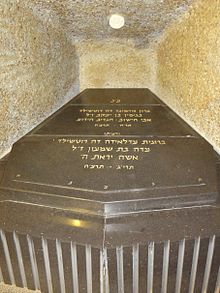 Jews and Arabs lived amicably on Rothschild’s land, with no Arab grievances, even in the worst periods of disturbance. According to historian Albert M. Hyamson, “Rothschild recognised that the overriding interest of the Jews of Palestine was the confidence and the friendship of their Arab neighbours. The interests of the Arab cultivators of the land he bought were never overlooked, but by development he made this land capable of maintaining a population ten times its former size.” While Edmond de Rothschild was not always supportive of an inclusive government – he suggested in 1931 to Judah Magnes that “We must hold them (the Arabs) down with a strong hand” – he acknowledged the importance of co-governance and peaceful coexistence in a 1934 letter to the League of Nations, stating that “the struggle to put an end to the Wandering Jew, could not have as its result, the creation of the Wandering Arab.” Jews and Arabs lived amicably on Rothschild’s land, with no Arab grievances, even in the worst periods of disturbance. According to historian Albert M. Hyamson, “Rothschild recognised that the overriding interest of the Jews of Palestine was the confidence and the friendship of their Arab neighbours. The interests of the Arab cultivators of the land he bought were never overlooked, but by development he made this land capable of maintaining a population ten times its former size.” While Edmond de Rothschild was not always supportive of an inclusive government – he suggested in 1931 to Judah Magnes that “We must hold them (the Arabs) down with a strong hand” – he acknowledged the importance of co-governance and peaceful coexistence in a 1934 letter to the League of Nations, stating that “the struggle to put an end to the Wandering Jew, could not have as its result, the creation of the Wandering Arab.”
Death
In 1934, Baron de Rothschild died at Château Rothschild, Boulogne-Billancourt. His wife died a year later on 29 December 1935. They were interred in Père Lachaise Cemetery in Paris until April 1954 when their remains were transported to Israel aboard a naval frigate.
At the port of Haifa, the ship was met with sirens and a 19-gun salute. A state funeral was held with former Prime Minister David Ben-Gurion giving the eulogy following which Edmond de Rothschild and his wife were re-interred in Ramat HaNadiv Memorial Gardens near the towns of Zichron Ya’akov and Binyamina, both of which he helped found and are named in his family’s honor.
 James Armand Edmond de Rothschild DCM DL (1 December 1878 – 7 May 1957), sometimes known as Jimmy de Rothschild, was a British Liberal politician and philanthropist, from the wealthy Rothschild international banking dynasty. James Armand Edmond de Rothschild DCM DL (1 December 1878 – 7 May 1957), sometimes known as Jimmy de Rothschild, was a British Liberal politician and philanthropist, from the wealthy Rothschild international banking dynasty.
De Rothschild was the son of Edmond James de Rothschild of the French branch of family. He was educated at Lycée Louis-le-Grand in Paris and at Trinity College, Cambridge. He served in the First World War, at the outset as an enlisted man in the French Army then as an officer in The Royal Canadian Dragoons, and ended the war as an officer in the British Army, serving in Palestine as a major in the 39th Battalion, The Royal Fusiliers (part of the “Jewish Legion”). He was awarded the Distinguished Conduct Medal.
He was a keen follower of the turf and a racehorse owner. His 33-1 runner “Bomba” won the Ascot Gold Cup in 1909.
He married Dorothy Mathilde Pinto in 1913. She was 17 years old; he was 35.
He became a naturalised Briton in 1920, and in 1922 he inherited from Alice de Rothschild the Waddesdon Manor estate of his great-uncle Baron Ferdinand de Rothschild, the Liberal Member of Parliament (MP) for Aylesbury from 1885 to 1898.
Described by the Journal of Liberal History as “one of the Liberal Party’s most colourful MPs”, Rothschild served as Liberal Member of Parliament for the Isle of Ely constituency from 1929 to 1945.
His defeat by Harry Legge-Bourke in the 1945 general election was one of only a few gains by the Conservative Party that year, with his Liberal colleagues Archibald Sinclair and William Beveridge similarly losing to Tory opponents.
During the Second World War he was Parliamentary Secretary to the Ministry of Supply in the Coalition Government 1940-1945. He was also a Deputy Lieutenant for the County of London and a Justice of the Peace in Buckinghamshire.
Philanthropy
,_vicomte_d'Harcourt_(à_g._et)_J.-A._de_Rothschild_(à_d.)_-_(photographie_de_presse)_-_(Agence_Rol).png/220px-28-6-25,_Vincennes_(i.e._Longchamp),_vicomte_d'Harcourt_(à_g._et)_J.-A._de_Rothschild_(à_d.)_-_(photographie_de_presse)_-_(Agence_Rol).png) Rothschild continued to support his father’s Zionist causes, and donated 6,000,000 Israeli Pounds towards the construction of the Knesset building in Jerusalem, which was completed in 1966. Rothschild continued to support his father’s Zionist causes, and donated 6,000,000 Israeli Pounds towards the construction of the Knesset building in Jerusalem, which was completed in 1966.
When he died in 1957, he bequeathed Waddesdon Manor to the National Trust. His widow Dorothy de Rothschild inherited the surrounding estate, and maintained a strong interest in the house and collections until she died in 1988.
 Israel (/ˈɪzriəl, ˈɪzreɪəl/; Hebrew: יִשְׂרָאֵל; Arabic: إِسْرَائِيل), officially the State of Israel, is a country in the Middle East, on the southeastern shore of the Mediterranean Sea and the northern shore of the Red Sea. It has land borders with Lebanon to the north, Syria to the northeast, Jordan on the east, the Palestinian territories of the West Bank and Gaza Strip to the east and west, respectively, and Egypt to the southwest. The country contains geographically diverse features within its relatively small area. Israel’s economic and technological center is Tel Aviv, while its seat of government and proclaimed capital is Jerusalem, although the state’s sovereignty over Jerusalem has only partial recognition. Israel (/ˈɪzriəl, ˈɪzreɪəl/; Hebrew: יִשְׂרָאֵל; Arabic: إِسْرَائِيل), officially the State of Israel, is a country in the Middle East, on the southeastern shore of the Mediterranean Sea and the northern shore of the Red Sea. It has land borders with Lebanon to the north, Syria to the northeast, Jordan on the east, the Palestinian territories of the West Bank and Gaza Strip to the east and west, respectively, and Egypt to the southwest. The country contains geographically diverse features within its relatively small area. Israel’s economic and technological center is Tel Aviv, while its seat of government and proclaimed capital is Jerusalem, although the state’s sovereignty over Jerusalem has only partial recognition.

Israel has evidence of the earliest migration of hominids out of Africa. Canaanite tribes are archaeologically attested since the Middle Bronze Age, while the Kingdoms of Israel and Judah emerged during the Iron Age. The Neo-Assyrian Empire destroyed Israel around 720 BCE. Judah was later conquered by the Babylonian, Persian and Hellenistic empires and had existed as Jewish autonomous provinces. The successful Maccabean Revolt led to an independent Hasmonean kingdom by 110 BCE, which in 63 BCE however became a client state of the Roman Republic that subsequently installed the Herodian dynasty in 37 BCE, and in 6 CE created the Roman province of Judea. Judea lasted as a Roman province until the failed Jewish revolts resulted in widespread destruction, expulsion of Jewish population and the renaming of the region from Iudaea to Syria Palaestina.[34] Jewish presence in the region has persisted to a certain extent over the centuries. In the 7th century the Levant was taken from the Byzantine Empire by the Arabs and remained in Muslim control until the First Crusade of 1099, followed by the Ayyubid conquest of 1187. The Mamluk Sultanate of Egypt extended its control over the Levant in the 13th century until its defeat by the Ottoman Empire in 1517. During the 19th century, national awakening among Jews led to the establishment of the Zionist movement in the diaspora followed by waves of immigration to Ottoman and later British Palestine.
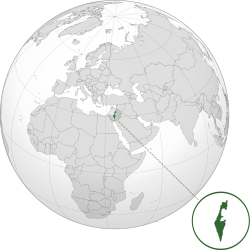 In 1947, the United Nations adopted a Partition Plan for Palestine recommending the creation of independent Arab and Jewish states and an internationalized Jerusalem. The plan was accepted by the Jewish Agency, and rejected by Arab leaders. The following year, the Jewish Agency declared the independence of the State of Israel, and the subsequent 1948 Arab-Israeli War saw Israel’s establishment over most of the former Mandate territory, while the West Bank and Gaza were held by neighboring Arab states. Israel has since fought several wars with Arab countries, and it has since 1967 occupied territories including the West Bank, Golan Heights and the Gaza Strip (still considered occupied after 2005 disengagement, although some legal experts dispute this claim).[41][42][43][fn 4] It extended its laws to the Golan Heights and East Jerusalem, but not the West Bank. Israel’s occupation of the Palestinian territories is the world’s longest military occupation in modern times.[fn 4][49] Efforts to resolve the Israeli-Palestinian conflict have not resulted in a final peace agreement. However, peace treaties between Israel and both Egypt and Jordan have been signed. In 1947, the United Nations adopted a Partition Plan for Palestine recommending the creation of independent Arab and Jewish states and an internationalized Jerusalem. The plan was accepted by the Jewish Agency, and rejected by Arab leaders. The following year, the Jewish Agency declared the independence of the State of Israel, and the subsequent 1948 Arab-Israeli War saw Israel’s establishment over most of the former Mandate territory, while the West Bank and Gaza were held by neighboring Arab states. Israel has since fought several wars with Arab countries, and it has since 1967 occupied territories including the West Bank, Golan Heights and the Gaza Strip (still considered occupied after 2005 disengagement, although some legal experts dispute this claim).[41][42][43][fn 4] It extended its laws to the Golan Heights and East Jerusalem, but not the West Bank. Israel’s occupation of the Palestinian territories is the world’s longest military occupation in modern times.[fn 4][49] Efforts to resolve the Israeli-Palestinian conflict have not resulted in a final peace agreement. However, peace treaties between Israel and both Egypt and Jordan have been signed.
In its Basic Laws, Israel defines itself as a Jewish and democratic state. Israel is a representative democracy[neutrality is disputed] with a parliamentary system, proportional representation and universal suffrage. The prime minister is head of government and the Knesset is the legislature. Israel is a developed country and an OECD member, with the 32nd-largest economy in the world by nominal gross domestic product as of 2017. The country benefits from a highly skilled workforce and is among the most educated countries in the world with one of the highest percentages of its citizens holding a tertiary education degree. Israel has the highest standard of living in the Middle East, and has one of the highest life expectancies in the world.
|









 Baron Abraham Edmond Benjamin James de Rothschild (19 August 1845 – 2 November 1934) was a French member of the Rothschild banking family. A strong supporter of Zionism, his large donations lent significant support to the movement during its early years, which helped lead to the establishment of the State of Israel, where he is simply known as “the baron Rothschild”.
Baron Abraham Edmond Benjamin James de Rothschild (19 August 1845 – 2 November 1934) was a French member of the Rothschild banking family. A strong supporter of Zionism, his large donations lent significant support to the movement during its early years, which helped lead to the establishment of the State of Israel, where he is simply known as “the baron Rothschild”.  Edmond de Rothschild inherited Château Rothschild, Boulogne-Billancourt and owned the Château Rothschild d’Armainvilliers in Gretz-Armainvilliers in the Seine-et-Marne département.
Edmond de Rothschild inherited Château Rothschild, Boulogne-Billancourt and owned the Château Rothschild d’Armainvilliers in Gretz-Armainvilliers in the Seine-et-Marne département.  Jews and Arabs lived amicably on Rothschild’s land, with no Arab grievances, even in the worst periods of disturbance. According to historian Albert M. Hyamson, “Rothschild recognised that the overriding interest of the Jews of Palestine was the confidence and the friendship of their Arab neighbours. The interests of the Arab cultivators of the land he bought were never overlooked, but by development he made this land capable of maintaining a population ten times its former size.” While Edmond de Rothschild was not always supportive of an inclusive government – he suggested in 1931 to Judah Magnes that “We must hold them (the Arabs) down with a strong hand” – he acknowledged the importance of co-governance and peaceful coexistence in a 1934 letter to the League of Nations, stating that “the struggle to put an end to the Wandering Jew, could not have as its result, the creation of the Wandering Arab.”
Jews and Arabs lived amicably on Rothschild’s land, with no Arab grievances, even in the worst periods of disturbance. According to historian Albert M. Hyamson, “Rothschild recognised that the overriding interest of the Jews of Palestine was the confidence and the friendship of their Arab neighbours. The interests of the Arab cultivators of the land he bought were never overlooked, but by development he made this land capable of maintaining a population ten times its former size.” While Edmond de Rothschild was not always supportive of an inclusive government – he suggested in 1931 to Judah Magnes that “We must hold them (the Arabs) down with a strong hand” – he acknowledged the importance of co-governance and peaceful coexistence in a 1934 letter to the League of Nations, stating that “the struggle to put an end to the Wandering Jew, could not have as its result, the creation of the Wandering Arab.”  James Armand Edmond de Rothschild DCM DL (1 December 1878 – 7 May 1957), sometimes known as Jimmy de Rothschild, was a British Liberal politician and philanthropist, from the wealthy Rothschild international banking dynasty.
James Armand Edmond de Rothschild DCM DL (1 December 1878 – 7 May 1957), sometimes known as Jimmy de Rothschild, was a British Liberal politician and philanthropist, from the wealthy Rothschild international banking dynasty. ,_vicomte_d'Harcourt_(à_g._et)_J.-A._de_Rothschild_(à_d.)_-_(photographie_de_presse)_-_(Agence_Rol).png/220px-28-6-25,_Vincennes_(i.e._Longchamp),_vicomte_d'Harcourt_(à_g._et)_J.-A._de_Rothschild_(à_d.)_-_(photographie_de_presse)_-_(Agence_Rol).png) Rothschild continued to support his father’s Zionist causes, and donated 6,000,000 Israeli Pounds towards the construction of the Knesset building in Jerusalem, which was completed in 1966.
Rothschild continued to support his father’s Zionist causes, and donated 6,000,000 Israeli Pounds towards the construction of the Knesset building in Jerusalem, which was completed in 1966.  Israel (/ˈɪzriəl, ˈɪzreɪəl/; Hebrew: יִשְׂרָאֵל; Arabic: إِسْرَائِيل), officially the State of Israel, is a country in the Middle East, on the southeastern shore of the Mediterranean Sea and the northern shore of the Red Sea. It has land borders with Lebanon to the north, Syria to the northeast, Jordan on the east, the Palestinian territories of the West Bank and Gaza Strip to the east and west, respectively, and Egypt to the southwest. The country contains geographically diverse features within its relatively small area. Israel’s economic and technological center is Tel Aviv, while its seat of government and proclaimed capital is Jerusalem, although the state’s sovereignty over Jerusalem has only partial recognition.
Israel (/ˈɪzriəl, ˈɪzreɪəl/; Hebrew: יִשְׂרָאֵל; Arabic: إِسْرَائِيل), officially the State of Israel, is a country in the Middle East, on the southeastern shore of the Mediterranean Sea and the northern shore of the Red Sea. It has land borders with Lebanon to the north, Syria to the northeast, Jordan on the east, the Palestinian territories of the West Bank and Gaza Strip to the east and west, respectively, and Egypt to the southwest. The country contains geographically diverse features within its relatively small area. Israel’s economic and technological center is Tel Aviv, while its seat of government and proclaimed capital is Jerusalem, although the state’s sovereignty over Jerusalem has only partial recognition.
 In 1947, the United Nations adopted a Partition Plan for Palestine recommending the creation of independent Arab and Jewish states and an internationalized Jerusalem. The plan was accepted by the Jewish Agency, and rejected by Arab leaders. The following year, the Jewish Agency declared the independence of the State of Israel, and the subsequent 1948 Arab-Israeli War saw Israel’s establishment over most of the former Mandate territory, while the West Bank and Gaza were held by neighboring Arab states. Israel has since fought several wars with Arab countries, and it has since 1967 occupied territories including the West Bank, Golan Heights and the Gaza Strip (still considered occupied after 2005 disengagement, although some legal experts dispute this claim).[41][42][43][fn 4] It extended its laws to the Golan Heights and East Jerusalem, but not the West Bank. Israel’s occupation of the Palestinian territories is the world’s longest military occupation in modern times.[fn 4][49] Efforts to resolve the Israeli-Palestinian conflict have not resulted in a final peace agreement. However, peace treaties between Israel and both Egypt and Jordan have been signed.
In 1947, the United Nations adopted a Partition Plan for Palestine recommending the creation of independent Arab and Jewish states and an internationalized Jerusalem. The plan was accepted by the Jewish Agency, and rejected by Arab leaders. The following year, the Jewish Agency declared the independence of the State of Israel, and the subsequent 1948 Arab-Israeli War saw Israel’s establishment over most of the former Mandate territory, while the West Bank and Gaza were held by neighboring Arab states. Israel has since fought several wars with Arab countries, and it has since 1967 occupied territories including the West Bank, Golan Heights and the Gaza Strip (still considered occupied after 2005 disengagement, although some legal experts dispute this claim).[41][42][43][fn 4] It extended its laws to the Golan Heights and East Jerusalem, but not the West Bank. Israel’s occupation of the Palestinian territories is the world’s longest military occupation in modern times.[fn 4][49] Efforts to resolve the Israeli-Palestinian conflict have not resulted in a final peace agreement. However, peace treaties between Israel and both Egypt and Jordan have been signed. 

